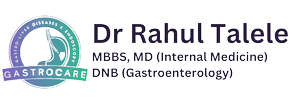Gastroenterology

What is Gastroenterology?
Gastroenterology is the branch of medicine that focuses on the digestive system and its disorders. This includes the esophagus, stomach, small and large intestines, pancreas, liver, and gallbladder. Gastroenterologists are specialists who diagnose and treat conditions related to the digestive system, such as acid reflux, inflammatory bowel disease, ulcers, hepatitis, and other disorders. They also perform procedures such as endoscopies, colonoscopies, and liver biopsies to diagnose and treat these conditions. The field of gastroenterology is constantly evolving, and new treatments and procedures are being developed to improve patient outcomes and quality of life.
Symptoms:
Some common symptoms of gastroenterological disorders include:
- Abdominal pain or discomfort
- Diarrhea or constipation
- Nausea or vomiting
- Heartburn or acid reflux
- Bloating or gas
- Blood in the stool or rectal bleeding
- Jaundice (yellowing of the skin or eyes)
- Difficulty swallowing or a sensation of food getting stuck in the throat
- Unintentional weight loss
- Loss of appetite
- Feeling full after eating only a small amount
If you experience any of these symptoms, it is important to see a gastroenterologist for a proper diagnosis and treatment plan.
Precaution:
Some common precautions that can help to prevent gastroenterological issues are:
- Maintaining a healthy diet: Eating a balanced diet that is rich in fiber, fruits, vegetables, and whole grains can help prevent many digestive disorders, such as constipation, diarrhea, and acid reflux.
- Staying hydrated: Drinking plenty of fluids can help prevent dehydration and keep the digestive system running smoothly.
- Avoiding trigger foods: Some people may have certain foods that trigger gastrointestinal symptoms, such as spicy or fatty foods, dairy products, or gluten.
- Limiting alcohol and caffeine intake: Excessive alcohol and caffeine intake can irritate the digestive system, leading to symptoms such as heartburn, nausea, and diarrhea.
- Washing hands frequently: Practicing good hand hygiene can help prevent the spread of infectious agents that can cause gastroenteritis.
- Getting vaccinated: Vaccines are available to prevent viral infections that can cause gastroenteritis, such as rotavirus and hepatitis A.
- Avoiding tobacco use: Smoking and other forms of tobacco use can increase the risk of many digestive disorders, including cancer of the digestive tract.
- Managing stress: Stress can contribute to digestive problems such as irritable bowel syndrome (IBS), so it is important to find healthy ways to manage stress, such as exercise, meditation, or therapy.
Frequently Asked Questions (FAQ's)
What is gastroenterology?
Gastroenterology is the branch of medicine that focuses on the diagnosis, treatment, and management of diseases and disorders of the digestive system, including the esophagus, stomach, small intestine, colon, rectum, pancreas, liver, and gallbladder.
What are the most common gastroenterological diseases?
Some of the most common gastroenterological diseases include gastroesophageal reflux disease (GERD), irritable bowel syndrome (IBS), inflammatory bowel disease (IBD), ulcerative colitis, Crohn’s disease, celiac disease, peptic ulcers, hepatitis, and cirrhosis.
What are the symptoms of gastrointestinal diseases?
Symptoms of gastrointestinal diseases can include abdominal pain, bloating, constipation, diarrhea, nausea, vomiting, heartburn, difficulty swallowing, rectal bleeding, and jaundice.
What are some of the diagnostic tests used in gastroenterology?
Diagnostic tests used in gastroenterology can include endoscopy, colonoscopy, upper GI series, barium enema, liver function tests, fecal occult blood test, and stool analysis.
What is the treatment for gastroenterological diseases?
The treatment for gastroenterological diseases varies depending on the specific condition, but can include medications, lifestyle modifications, dietary changes, surgery, and other interventions.
When should I see a gastroenterologist?
You should see a gastroenterologist if you are experiencing symptoms such as abdominal pain, bloating, diarrhea, constipation, or rectal bleeding. You should also see a gastroenterologist if you have a family history of gastrointestinal diseases or if you have been diagnosed with a digestive disorder.
